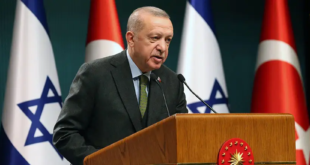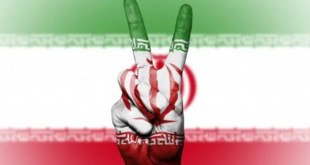KHARTOUM (AFP) — The merger of the two main rebel groups in war-torn Darfur could simplify peace talks and help shorten the bloody nearly three-year-old conflict in Sudan’s western region, the government and analysts said.
The Sudan Liberation Movement (SLM) and the Justice and Equality Movement (JEM) announced on Friday that they had agreed to join forces, establishing the Alliance of Revolutionary Forces of West Sudan.
African Union (AU) officials trying to mediate an end to the Darfur conflict have repeatedly urged unity among the rebels, saying this would facilitate peace negotiations with the government and expedite a solution.
The Sudanese government has also complained that by presenting conflicting demands at the negotiating table, the rebel groups and splinter factions were hampering efforts to end the conflict.
Rebel groups in Darfur launched a rebellion in February 2003 against what they claimed was the marginalisation of their provinces by Khartoum.
The uprising was brutally repressed by the government and its proxy militias known as the Janjaweed. The combined effect of war and one of the world’s worst humanitarian crises left some 300,000 people dead and 2.4 million displaced.
The AU, which has been leading the Darfur peace negotiations in the Nigerian capital Abuja, said it had not been officially informed about the rebel merger, but Sudanese Foreign Minister Lam Akol hailed it as a positive step.
“The AU is yet to get any official document that the SLM and JEM have merged to form an alliance,” AU spokesman at the Abuja talks, Noureddine Mezni, told AFP on Saturday.
Akol was upbeat. “We have always been looking for them to come together because it is easier to negotiate with a united group,” he said on Saturday. “If that is true, it is positive in the direction of peace.”
Sudanese political analyst and Darfur expert Mohammed Mahjub Harun agreed, saying: “It is positive and necessary.”
The SLM and JEM said the “union will strengthen the solidarity, cohesion and unity of the people of Sudan in general and that of the west in particular.”
It will also “further strengthen the position of the armed movements in [peace] negotiations” under way in Abuja, they said in a press statement.
Harun noted that with the rebel merger the government will face “a single group with one agenda.” More important, explained Sudanese political analyst Abdullah Adam Kheir, was the fact the Mani Arko Minawi, who has been engaged in a power struggle with SLM leader Abdul Wahid Mohammed Nur, was now onboard.
In fact, the agreement uniting the two groups was signed on behalf of JEM by its leader, Ibrahim Khalil, and for the SLM by Minawi himself. Nur has been on good terms with JEM before and since Minawi tried to unseat him from the leadership of the SLM last year and his faction signed a memorandum of understanding with JEM that Minawi had opposed.
“Minawi was out of the agreement,” Kheir said.
“We have set up this union in the interests of the people of Darfur,” Khalil told reporters after the signing of the deal.
Some have expressed concern that the rebels could use their newfound unity to harden positions at the negotiating table, especially because the alliance will significantly boost their fighting power, but Kheir disagreed.
 Eurasia Press & News
Eurasia Press & News



